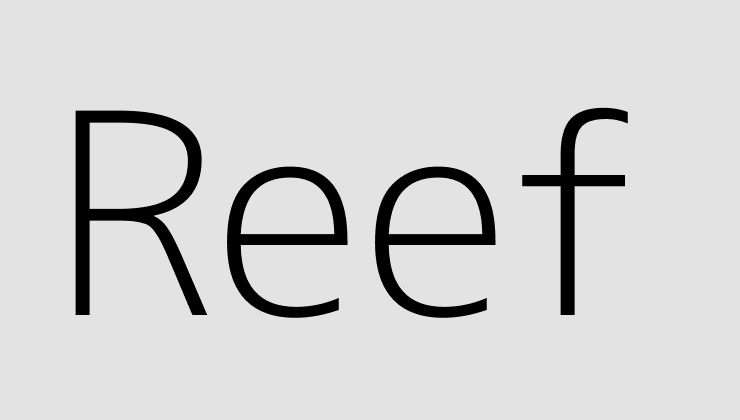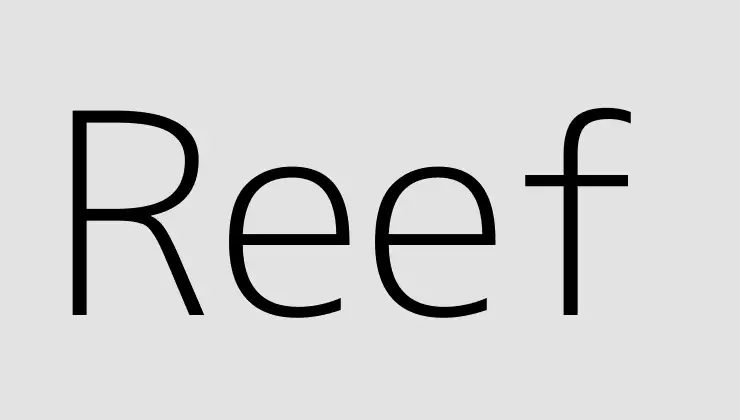Reef’in güncel fiyatı 0,02 dolardan üzerinde işlem görüyor. Son zamanlarda çok fazla yatırımcının ilgisini çekmiş olan Reef, yatırım yapmak isteyenler için farklı fırsatlar sunuyor. Ancak, bu yatırımın riskli olabileceği göz önünde bulundurulmalıdır. Reef hakkında daha fazla bilgi edinmek ve yatırım kararınız için doğru seçimi yapmak için uzman yorumlarına ve analizlerine göz atabilirsiniz.

Reef: A Fascinating Ecosystem in Our Oceans
Reefs are often referred to as the rainforests of our oceans. They are diverse, complex ecosystems that occupy less than one percent of the world’s oceans but support a quarter of all marine life. In this article, we will explore the various types of reefs, their importance, and the threats they face.
The Different Types of Reefs
There are three types of reefs: fringing reefs, barrier reefs, and atolls. Fringing reefs are found close to shore and are directly connected to the shoreline or a rocky platform. Barrier reefs are separated from the shore by a lagoon and are often several kilometers wide. Atolls are circular or oval-shaped reefs that have a lagoon in the center.
The Importance of Reefs
Reefs provide numerous benefits to both marine organisms and humans. They serve as habitats and breeding grounds for thousands of marine species, including fish, crabs, and sea turtles. Reefs protect coastlines from erosion, reduce the impact of waves, and provide recreational opportunities such as snorkeling and diving. They also contribute to the economy by supporting fishing and tourism industries.
The Threats to Reefs
Unfortunately, reefs are facing numerous threats that are causing their decline. Climate change, including rising sea temperatures and increased carbon dioxide levels, is leading to coral bleaching, where the coral turns white and dies. Overfishing and destructive fishing practices, such as using dynamite, are damaging the reefs and depleting fish populations. Pollution from sewage, chemicals, and plastic waste also harms the reefs and their inhabitants.
Efforts to Protect Reefs
There are many efforts underway to protect and restore reefs. Marine protected areas are being established to limit destructive human activities in and around these ecosystems. Regulations and laws are being put in place to reduce the amount of pollution that enters the oceans. Sustainable fishing practices, such as using nets instead of dynamite, are being encouraged. Scientists are also exploring ways to breed and grow coral in laboratories to help restore damaged reefs.
Conclusion
Reefs are truly incredible ecosystems that provide crucial benefits to both marine life and humans. However, they are facing numerous threats that require immediate action. It is up to all of us to do our part in protecting and preserving these vital habitats for future generations to enjoy.
FAQs About Reefs
1. How do reefs form?
Reefs form when hard coral polyps secrete calcium carbonate skeletons that accumulate and grow over time.
2. Can reefs survive coral bleaching?
Reefs can recover from coral bleaching if the cause of the bleaching is quickly addressed and if the coral hasn’t died.
3. Why are reefs important to humans?
Reefs provide numerous benefits to humans, including coastal protection, food and income from fishing and tourism, and recreational opportunities.
4. How can I help protect reefs?
You can help protect reefs by reducing your carbon footprint, using sustainable fishing practices, reducing your waste, and supporting organizations that are working to protect reefs.
5. Are there any laws protecting reefs?
Yes, there are laws and regulations in place to protect reefs, including marine protected areas and restrictions on fishing and pollution.
